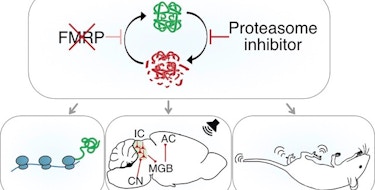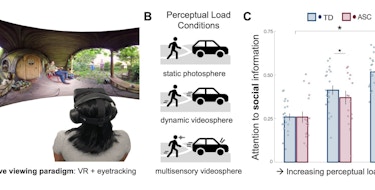A hallmark feature of autism spectrum disorder (ASD) are restricted, repetitive behaviors (RRBs). It is possible that these behaviors might arise from changes in the striatum, a brain region that controls how an individual learns movement-related routines, selects actions and forms motor habits. But little is known about how mutations in genes associated with ASD affect brain cells in the striatum. Moreover, the brain mechanisms driving RRBs could vary depending on the specific gene affected. Supported in part by a SFARI Pilot Award, SFARI investigator Helen Bateup and her colleagues explored whether disrupting the Tsc1 gene in specific cell types in the striatum alters motor behaviors related to ASD (Bentall et al., Cell Rep., 2021).
In children, mutations in TSC1 or TSC2 cause tuberous sclerosis complex (TSC), a rare developmental condition affecting many systems throughout the body, including the brain. Up to 50 percent of people with TSC are diagnosed with ASD. To better understand the potential link between TSC1 mutations and RRBs in individuals with TSC and ASD, Bateup and her colleagues used mice in which Tsc1 was deleted from the striatum. The striatum contains two populations of inhibitory cells — direct pathway spiny projection neurons (dSPNs) and indirect pathway spiny projection neurons (iSPNs) — that coordinate their activity to allow for normal striatal functioning.
The study found that a loss of Tsc1 in dSPNs, but not iSPNs, enhanced the ability to learn a fixed motor routine. Loss of Tsc1 was also associated with changes in a type of synaptic plasticity known as long-term depression, ultimately resulting in excessive cortical activation of dSPNs. These findings suggest that a loss of Tsc1 in the striatal direct pathway might drive a propensity to acquire repetitive motor routines, which could play a role in the development of RRBs in TSC.
Reference(s)
Loss of Tsc1 from striatal direct pathway neurons impairs endocannabinoid-LTD and enhances motor routine learning.
Benthall K.N., Cording K.R., Agopyan-Miu A.H.C.W., Wong C.D., Chen E.Y., Bateup H.


